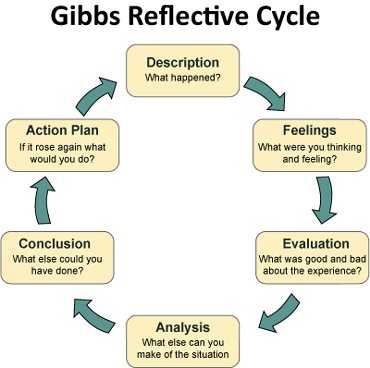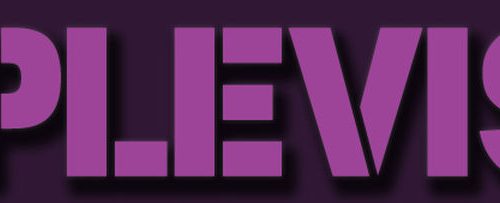RETURNING TO THE LION’S DEN: PRIMARY SCHOOL EDITION
“But you hated school!
Why are you doing a teaching placement?”

Was I anxious on the first day of my teaching placement? Yes! My experience of school as a pupil was riddled with bullying, chronic anxiety, and debilitating academic stress. However, due to my traumatic experiences at school, I want to become a primary school teacher with pupil well-being high on my agenda. Undeniably, “teachers have an important role” in supporting pupil well-being (Markkanen et al. 2020: 46, 47). Nonetheless, to engage in healthy teacher-pupil relationships, I must learn how to jump the hurdle of behaviour management.
Using Gibbs’ reflective cycle, this blog post reflects upon my first solo experience behaviour managing six challenging pupils on the first day of my placement.
Gibbs’ Reflective Cycle

Since this experience was emotionally difficult for me, I chose Gibb’s reflective cycle (Gibbs 1988) as it includes an emotional dimension (‘feelings’) that is not present in other models (Husebø and O’Regan 2015: 373). It “emphasises reflecting on [feelings]” before “[concluding] with a specific action plan should the situation arise again” (Davis 2012: 10). This proactive approach to experiential reflection has proven to be an invaluable tool for increasing my confidence working with children who have Special Educational Needs (SEN).
Description:

My first assigned task was to work on an alphabetical-order worksheet with six pupils (some with SEN), who were hyperactive and had difficulty focusing. The first behaviour management approach I tried was to make negative statements positive, such as “Student X, I need you to listen carefully to these instructions”, instead of “Student X, stop talking over me”. However, they remained inattentive and misbehaved. To encourage hard work and boost concentration, I told the group I would award them points on their ClassDojo (ClassDojo 2022) if they focused quietly on their work. Most of the pupils were excited by this prospect and began to work hard and concentrate. After a few minutes, a pupil with SEN accidentally broke her ruler and became extremely upset. I allowed her time to cry and express her emotions before gently breaking the task into small chunks. This helped her complete a small amount of work, but she was still very emotional which distracted other pupils in the group. Therefore, I had to ask their class teacher to intervene and remove her from the workspace.
Feelings:

Initially, I felt apprehensive and anxious about the unknown. This quickly switched to feeling overwhelmed and helpless as the pupils’ behaviour spiralled out of control. I thought it would be embarrassing if I ‘failed’ to control the group ‘perfectly’.

Upon establishing a productive working environment, I experienced a tentative wave of relief and cautiously started to feel relaxed and confident. I thought I had clumsily managed to get the situation under control.

When the control I had established began to unravel, I felt panicked and flustered. I experienced negative critical thoughts that I wasn’t good enough and that I had ‘failed’ at the first hurdle.
Evaluation:
When challenged by misbehaviour and lack of focus from my pupils, I did not get angry or raise my voice which helped avoid resentment from the group towards me or their work. Moreover, I was able to effectively engage and incentivise my pupils by giving their schoolwork a purpose through the class reward system. Even when this environment unravelled, I remained calm on the surface and used my initiative to call for assistance from the teacher, ensuring the situation did not escalate further and the distressed pupil got the correct support. However, I engaged in self-critical thoughts throughout the task which consequently undermined my confidence and assertiveness when managing the group. Since I was a ‘new’ figure for these challenging pupils, they were able to take advantage of my initial timidity and reservations.

Analysis:
On reflection, my feelings of stress and unease can be linked to past events. My previous teaching experiences were not classroom-based and involved fewer students with no SEN. This accounts for the fear of the unknown, pressure, and apprehension I experienced at the beginning of the task. Furthermore, the unfamiliar surroundings, people, and situation provoked anxiety, heightened by the classroom setting that I naturally associate with such emotions from my own negative experiences at school. My internal criticisms and negative thoughts were understandable but irrational, considering that I managed the situation reasonably well and most pupils finished the task. Besides, since completing more time in my placement, I now realise that even qualified teachers struggle with behaviour management; it is a skill that is gradually developed over time. Waide concurs that “there is no magic potion” for behaviour management; teachers and students are both “human” (2008: 73).

Conclusion:

It is important to be firm and confident when managing behaviour. Waide warns against teachers being timid and advocates a “firm but fair” approach (2008: 73). Such an approach from the outset could have made a marked difference to my experience. Furthermore, it is imperative to consciously counteract negative thoughts with self-compassion and evaluate experiences from an objective position. By being less self-critical and limiting the interference of anxiety, my mind would have been clearer to cope with the situation. Therefore, I may have handled events differently, such as choosing to alert the teacher earlier to help the upset pupil and to reduce the amount of distraction her peers experienced.
Action Plan:
Henceforth, I will not be timid in the face of challenging behaviours. At the outset, I will firmly give pupils a clear choice of two options: “We have 25 minutes to complete this worksheet. If you complete it before the time is up, we can play a game. But if the time is spent chatting, we’ll have to continue completing it after break-time”. I will firmly establish authority by assertively addressing misbehaviours as soon as they arise, such as “It is not OK to raise your voice like that in this group, Student X”. Furthermore, I will attempt to counteract negative thoughts with balanced alternatives to keep my mind clear and focused. This approach will enable me to deal with challenging circumstances with mental clarity and confidence.
Reflection – an ongoing journey

It would be naïve to assume that by the end of this placement I will be expert in behaviour management. However, Brookfield affirms that teachers must maintain a stance of “permanent enquiry”, consistently “[modifying] their practice in the light of ongoing experience” (Brookfield 1995, cited in Mulryan-Kyne 2021: 502). By continuously reflecting and examining my thoughts, feelings, and actions in the classroom, I hope to develop skills of assertiveness, empathetic leadership, and classroom confidence.
Bibliography:
Brookfield, S. 1995. Becoming a Critically Reflective Teacher. San Francisco: Jossey-Bass, pp. 42–43.
ClassDojo. 2022. About us. https://www.classdojo.com/en-gb/about/ (accessed 9 November 2022).
Davies, S. 2012. Embracing reflective practice. Education for Primary Care, 23.1: 9-12. https://doi.org/10.1080/14739879.2012.11494064
Gibbs, G. 1988. Learning by Doing. A Guide to Teaching and Learning Methods. London: Further Education Unit at Oxford Polytechnic.
Husebø, S. E., and S. O’Regan. 2015. Reflective Practice and Its Role in Simulation. Clinical Simulation in Nursing, 11.8: 368-375. http://dx.doi.org/10.1016/j.ecns.2015.04.005
Markkanen, P., M. Välimäki, M. Anttila, and M. Kuuskorpi. 2020. A reflective cycle: Understanding challenging situations in a school setting. Educational Research, 62.1: 46-62. https://doi.org/10.1080/00131881.2020.1711790
Mulryan-Kyne, C. 2021. Supporting reflection and reflective practice in an initial teacher education programme: an exploratory study. European Journal of Teacher Education, 44.4: 502-519. https://doi.org/10.1080/02619768.2020.1793946
Waide, L. 2008. So You Want to Be a Teacher? How to Launch Your Teaching Career. London: Continuum International Publishing Group.
You May Also Like

Securing a Placement: An Observation in Timing and Luck
25 November 2022
Securing My Placement: The Humbling Experience of Film Industry Rejection
24 November 2022
